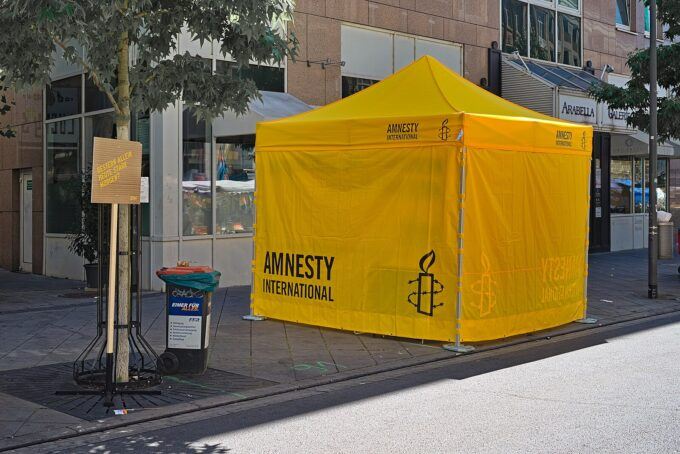It was bound to happen. With continuing operations in Gaza, and increasingly violent activities being conducted against Palestinians in the occupied territories, human rights organisations are making increasingly severe assessments of Israel’s warring cause. While the world awaits the findings of the International Court of Justice on whether Israel’s campaign, as argued by South Africa, amounts to genocide, Amnesty International has already reached its conclusions.
In a 296-page report sporting the ominous title “You Feel Like You Are Subhuman”, the human rights body, after considering the events in Gaza between October 2023 and July 2024, identified a “pattern of conduct” that indicated genocidal intent. These included, among other things, persistent direct attacks on civilians and objects “and deliberately indiscriminate strikes over the nine-month period, wiping out entire families repeatedly launched at times when these strikes would result in high numbers of casualties”; the nature of the weapons used; the speed and scale of destruction to civilian objects and infrastructure (homes, shelters, health facilities, water and sanitation infrastructure, agricultural land”; the use of bulldozing and controlled demolitions; and the use of “incomprehensible, misleading and arbitrary ‘evacuation’ orders’”.
The report does much to focus on statements made from the highest officials to the common soldiery to reveal the mental state necessary to reveal genocide. 102 statements made by members of the Knesset, government officials and high-ranking commanders “dehumanized Palestinians, or called for, or justified genocidal acts or other crimes under international law against them.” The report also examined 62 videos, audio recordings and photographs posted online featuring gleeful Israeli soldiers rejoicing in the “destruction of Gaza or the denial of essential services to people in Gaza, or celebrated the destruction of Palestinian homes, mosques, schools and universities, including through controlled demolitions, in some cases without apparent military necessity.”
From its alternative universe, the Israeli public relations machine drew from its own agitprop specialists, working on mangling the language of the report. The formula is familiar: attack the authors first, not their premises. “The deplorable and fanatical organisation Amnesty International has once again produced a fabricated response that is entirely based on lies,” came the howl from Israeli Foreign Ministry spokesperson Oren Marmorstein.
Other methods of repudiation involve detaching Hamas and its war with Israel from any historical continuum, not least the fact that it was aided, supported and backed by Israel for years as a counter to Fatah in the West Bank. Isolating Hamas as a terrorist aberration also serves to treat it as alien, artificially foreign and not part of any resistance movement against suffocating Israeli occupation and strangulation. They, so goes this argument, are genocidal, and countering such a body can never be, by any stretch, genocidal. The pro-Israeli group NGO Monitor abides by this line of reasoning, calling allegations of genocide against Israel “a reversal of the actual and clearly established intent of Hamas and its allies (including its patron, Iran), to wipe Israel off the map”.
Israel’s closest ally and sponsor, the United States, proved predictable in rejecting the findings while still claiming to respect the humanitarian line. The US State Department’s principal deputy spokesman, Vedant Patel, expresseddisagreement “with the conclusions of such a report. We had said previously and continue to find that the allegations of genocide are unfounded.” Patel did, however, pay lip service to the “vital role that civil society organizations like Amnesty International and human rights groups and NGOs play in providing information and analysis as it relates to Gaza and what’s going on.” Vital, but only up to a point.
Far less guarded assessments can be found in the American pro-Israeli chatter sphere. These follow the usual pattern. Orde Kittrie, senior fellow of the Foundation for Defense of Democracies, a name that can only imply that crimes committed in such a cause are bound to be justifiable, offers a neat illustration. Amnesty, he argues, “systematically and repeatedly mischaracterizes both the facts and the law.” Kittrie suggests his own mischaracterisation by parroting the IDF’s line that Hamas had “increased casualty counts by illegally using Palestinian civilian shields and by hiding weapons and war fighters in and below homes, hospitals, mosques, and other buildings.” This conveniently ignores that point that the numbers are not necessarily proof of genocidal intent, though it helps.
The report also notes that, even in the face of such tactics by Hamas, Israel was still “obligated to take all feasible precautions to spare civilians and avoid attacks that would be indiscriminate or disproportionate.”
Amnesty International’s report is yet another addition to the gloomy literature on the subject. Human Rights Watch, in November, pointed to violations of the laws of war, crimes against humanity, and the provisional measures of the ICJ issued urging Israel to abide by the obligations imposed by the UN Genocide Convention of 1948. The Israeli human rights organisation B’Tselem stated in no uncertain terms in October that “Israel intends to forcibly displace northern Gaza’s residents by committing some of the gravest crimes under the laws of war”.
Battling over the designation of whether a campaign is genocidal can act as a distraction, a field of quibbles for paper pushing pedants. The “specific intent” in proof must be unequivocally demonstrated and beyond any other reasonable inference. A smokescreen is thereby deployed that risks masking the broader ambit of war crimes and crimes against humanity. But no amount of pedantry and disagreement can arrest the sense that Israel’s lethal conduct, whatever threshold it may reach in international law, is directed at destroying not merely Palestinian life but any worthwhile sense of a viable sovereignty. Amnesty Israel, while rejecting the central claim of the parent organisation’s report did make one concession: the country’s brutal response following October 7, 2023 “may amount to crimes against humanity and ethnic cleansing.”












